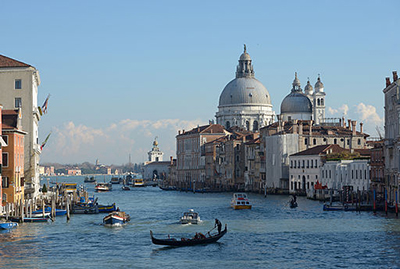5 Places to Visit Before They’re Gone for Good
Global warming is a major threat affecting us more than what we ever imagine. Various species of plants and animals have become extinct because of global warming. Several parts of the world suffered from drought also due to global warming. The other parts have also suffered from flood due to the melting of the ice in the polar caps. If they are not enough, global warming may also affect the tourism industry. Several magnificent sites may be lost for good if we don’t do anything now. Here are 5 places you should visit as soon as you can.
The Maldives
This small country located in the Indian Ocean is becoming more popular these days. Several couples have decided to choose this island nation for a romantic getaway. Known as the lowest nation in the world, Maldives is a country composed of 1,200 islands. Most of them are just 1 meter above sea level. Due to the rising waters, Maldives might soon be erased from the map. There is no wonder why the government is now focusing on purchasing land from other nations for the citizens. In less than a century, Maldives will no longer be available for habitation.
Glacier National Park, Montana
During the 19th century, this park was filled with over 150 glaciers, covering over 16,000 square miles of protected land. However, as recently as 2010, it was revealed that only 25 active glaciers remain. According to scientists, if the current pattern in our climate does not change, all the glaciers could be gone in as soon as 2020. The plenty wildlife that thrives in it could also be seriously affected.
Venice, Italy
This Italian city is one of the most romantic places for you to visit. Try the gondola while serenaded across the beautiful canals. The sad part is that this place which is known as the City of Water, will soon be literally submerged in water. There might be not enough time left according to the government as the sinking rate is 5 times faster now.
Madagascar
You might have only heard of this place in movies, but this 4th largest island on Earth is home to some of the most diverse wildlife ever. In the movie Madagascar, the main characters are animals. It is also the same in the real Madagascar. Sadly, these animals are now threatened. Illegal loggers and poachers kill the forest at a really fast rate. If the government does not step to save the island, the unique wildlife thriving in it could soon die.
Great Barrier Reef
Off the coast of Australia, you will find the Great Barrier Reef which is home to the largest coral reef in the world. Unfortunately, due to ocean acidification and pollution plus the increasing ocean temperatures, more than half of the reef is gone. If this pattern continues, the remaining reef could also be gone in as soon as 2030.
These majestic places deserve to be saved. Yes, you can plan your trio soon before they are gone, but you should also do whatever you can to save them.
Photo Attribution:
Featured and 1st image by Nevit Dilmen (Own work) [GFDL (http://www.gnu.org/copyleft/fdl.html) or CC-BY-SA-3.0 (http://creativecommons.org/licenses/by-sa/3.0/)], via Wikimedia Commons
2nd image by This Photo was taken by Wolfgang Moroder. Feel free to use my photos, but please mention me as the author and send me a message. This image is not public domain. Please respect the copyright protection. It may only be used according to the rules mentioned here. This specifically excludes use in social media, if applicable terms of the licenses listed here not appropriate. Please do not upload an updated image here without consultation with the Author. The author would like to make corrections only at his own source. This ensures that the changes are preserved. Please if you think that any changes should be required, please inform the author. Otherwise you can upload a new image with a new name. Please use one of the templates derivative or extract. (Own work) [GFDL (http://www.gnu.org/copyleft/fdl.html) or CC BY-SA 3.0 (http://creativecommons.org/licenses/by-sa/3.0)], via Wikimedia Commons





